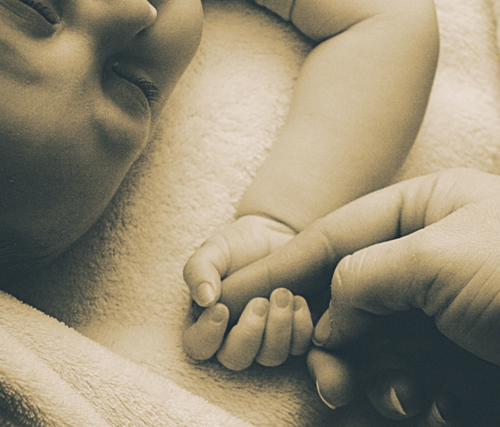The effect of unconditional love is a “profound and lasting sense of peace and fulfillment that deeply satisfies and enlarges the soul”. Being unconditionally loving does not imply that we become a doormat or accept any behaviour from a person. It means that if we need to correct someone, we do it with care and concern and not with anger and disappointment.
To be unconditionally loving is a process, since most of us have been exposed to conditional acceptance all of our lives. Conditional love is “I like how you make me feel”. Consequently, the majority of us enter into romantic relationships feeling empty, and expecting our partner to fill the void of a lifetime of lack of unconditional love. The result is often an unhappy relationship because it is not our partner’s role to fulfill our every need.

by ~patrycjanna
There are four categories of imitation love: praise, power, pleasure and safety.
Praise is when others tell us how wonderful we are. This usually includes flattery, gratitude, approval, respect, etc.
Power is when we control others through money, authority, sex, persuasion…etc.
Pleasure is a way to numb the emptiness of lack of unconditional love through sex, movies, travel, shopping, food, etc. in order to make life more bearable.
Finally, safety is the avoidance of any additional pain by not taking any risks such as staying in a dead-end job, an unfulfilling romantic relationship, or not trying anything new.
The problem with imitation love is that its effects wear off quickly and over time, we need a greater amount to get the same effect. Also, when we lack unconditional love in our lives, we tend to display Getting and Protecting Behaviours.
Getting Behaviours include lying, attacking, acting like a victim and running. Protecting behaviours are lying, attacking, acting like a victim, and clinging.
Lying is when we don’t tell the whole truth about a situation, whether by deleting some facts or modifying them so that people can like us.
Attacking is using fear to get people to do what we want. Attacking can encompass making others feel guilty, criticizing them, withdrawing approval, among others.
Acting like a victim includes a variation of these three sentences: “1. Look what you did to me; 2. Look what you should have done for me (and didn’t); and 3. It’s not my fault”.
Running is moving away from the source of pain by avoiding to confront issues, ending relationships, or using drugs/alcohol to escape.
Finally, clinging is to tightly hold on to people who give us imitation love. For example, we may use flattery, going out of our way for people so they feel obligated to us, or telling them how we can’t survive without their love.

by ~ezorenier
There are four steps to experience real love.
The first step is to tell the whole truth about ourselves to a wise person. Wise people are individuals who feel sufficiently loved themselves that they are capable of loving us even with all our flaws.
Secondly, we will therefore be seen for who we really are; thirdly we will feel accepted; and finally we will feel unconditionally loved.
Baer underlines the fact that it may take a while to find wise individuals, and that we may get only small doses of real love every once in a while. However if we persevere, these four steps will become a habit and the sense of well-being from unconditional love will make imitation love very unappealing. Also, Getting and Protecting behaviours will naturally stop as we experience consistent real love.
Becoming an unconditionally loving person is a life-long process, but the effort is worth the ultimate goal of feeling a deep sense of peace and a real connection to others.
Here are interesting quotes from the book Real Love:
- “Don’t blame your partner for your unhappiness, which is really caused by a long-standing lack of Real Love in your life.”
- “For most of us, the real meaning of “I’ve fallen in love” is “I’ve found someone who will give me all the Imitation Love I want.”
- “When you use Getting and Protecting Behaviours, you will not be able to feel Real Love, even when it’s being given to you.”
- “In any relationship, you really have only three choices to make: live with it and like it, live with it and hate it, or leave.”
- “Faith is a decision you make to tell the truth about yourself even when you’re still uncertain about what might happen.”
References: http://www.sexualhealthsite.info/real-love.php

by ~bittersweetvenom
Our misconceptions of unconditional love began in early childhood, where we saw that when we did all the right things—when we were clean, quiet, obedient and otherwise “good”—people “loved” us. They smiled at us and spoke in gentle tones. But we also saw that when we were “bad,” all those signs of “love” instantly vanished. In short, we were taught by consistent experience that love was conditional, that we had to buy “love” from the people around us with our words and behavior.
So what’s wrong with conditional love? We see it everywhere we look, so what could be wrong with it? Imagine that every time you pay me fifty dollars, I tell you I love you. We could do that all day, but at the end of the day would you feel loved? No, because you’d know that I “loved” you only because you paid me. We simply can’t feel fulfilled by love we pay for. We can feel loved only when it is freely, unconditionally given to us. The instant we do anything at all to win the approval or respect of other people—with what we say, what we do, how we look—we are paying for the attention and affection we receive, and we can’t feel genuinely loved.
We can be certain that we’re receiving Real Love only when we make foolish mistakes, when we fail to do what other people want, and even when we get in their way, but they don’t feel disappointed or irritated at us. That is Real Love (true unconditional love), and that love alone has the power to heal all wounds, bind people together, and create relationships quite beyond our present capacity to imagine.
References: http://www.reallove.com/about.asp

by ~thezgi
We can completely change the way we see other people, the way we feel about them, and the way we respond to them. When you truly understand and remember that people behave badly only when they're empty and afraid—when you see the truth about bad behaviors, that they're just Getting and Protecting Behaviors—you lose your anger. How can you be angry at people who are just doing their best to respond to the pain in their lives? You can begin to respond to people with compassion instead of reacting with your own Getting and Protecting Behaviors, and that will change your relationships—every interaction, for that matter—dramatically.
We can eliminate the excessive, destructive guilt in our lives. When we understand that other people are selfish and hurtful only because they are empty and afraid, we can begin to accept that our own selfish and hurtful behaviors are motivated by a desire to eliminate our emptiness and fear. When we behave badly, we're not evil; we're just doing our best to minimize our pain.
References: http://www.reallove.com/lack_of_real_love.asp
Without thinking about it, almost all of us tend to establish relationships based on the trading of Imitation Love. Let’s arbitrarily measure Imitation Love in dollars, and we’ll suppose that when you give a dollar of Imitation Love to someone, that person gives you twenty cents in return. To a second person you also give a dollar, but this time you receive fifty cents in return. Without being aware of the reason, you naturally prefer the company of the person who gives you a fifty percent return on your investment—it’s that better rate of return that determines why we “like” some people more than others.
Eventually, you give a dollar’s worth of Imitation Love to someone who gives you a full dollar in return. Excited about this dramatic improvement in the return on your investment, you give him or her two dollars, then three, then more, and to your delight, you are rewarded equally each time. This is so exciting that you are now “in love”.

by ~ruuca
Falling in love is rarely anything more than the relatively equal and abundant exchange of Imitation Love. That may not be romantic, but it’s nonetheless true. When a guy sees a girl across a crowded room and says to his friends, “I think I’m in love,” is there anyone on the planet who believe that his true meaning is, “I’ve fallen into a sudden unconditional concern for her happiness”? No, he’s expressing a belief that he’ll get more Imitation Love from her than he would from anyone else he can think of. We tend to start our relationships on the basis of how much Imitation Love we anticipate we’ll receive from that partner, and that’s a disastrous foundation for a relationship.
Falling in love is rarely anything more than the relatively equal and abundant exchange of Imitation Love—a formula for disaster.
As I’ve said before, however, the effect of Imitation Love always fades, as Michael and Susan discovered. They really enjoyed the initial exchange of Imitation Love, but it wasn’t long before that level of praise, power, and pleasure wasn’t as rewarding as it once had been. When people say the “excitement has worn off” in a relationship, they’re just describing the fleeting effects of Imitation Love. As we experience less “happiness” with Imitation Love, we naturally turn to the people closest to us to supply what we’re missing, and understandably our partners feel resentful of our increased demands. Most of our relationships begin based on an unspoken understanding of how much Imitation Love our partners will give us, and how much we’ll give them in return, and when we change the rules—when we give less or demand more—our partners don’t like that one bit.
References: http://www.reallove.com/fallinginlove.asp

by ~MidnightxMuse
Reading this, most of you probably think, well I haven't experienced that yet. But you probably have, don't forget about your family. That is the best example of unconditional/real love. The fact that your parents care about you no matter what you do or say or become. The same goes for your siblings (hopefully). No matter what my brothers do or say or become, I will still hope for the best for them, I will still love them unconditionally. This is the type of love we need in our relationships with our partners. Stop expecting things and be the first to show it. Once he/she feels unconditionally loved by you, he'll/she'll automatically unconditionally love you back. But the mindset is not to 'unconditionally' love someone so they will 'unconditionally' love you back, because technically that's not unconditional love you're giving in the first place, because you're 'expecting' something in return: their unconditional love. It's confusing if you think too much. Just keep one thing in mind, love them whilst expecting nothing from them, love them like you would love your parents and siblings.


No comments:
Post a Comment